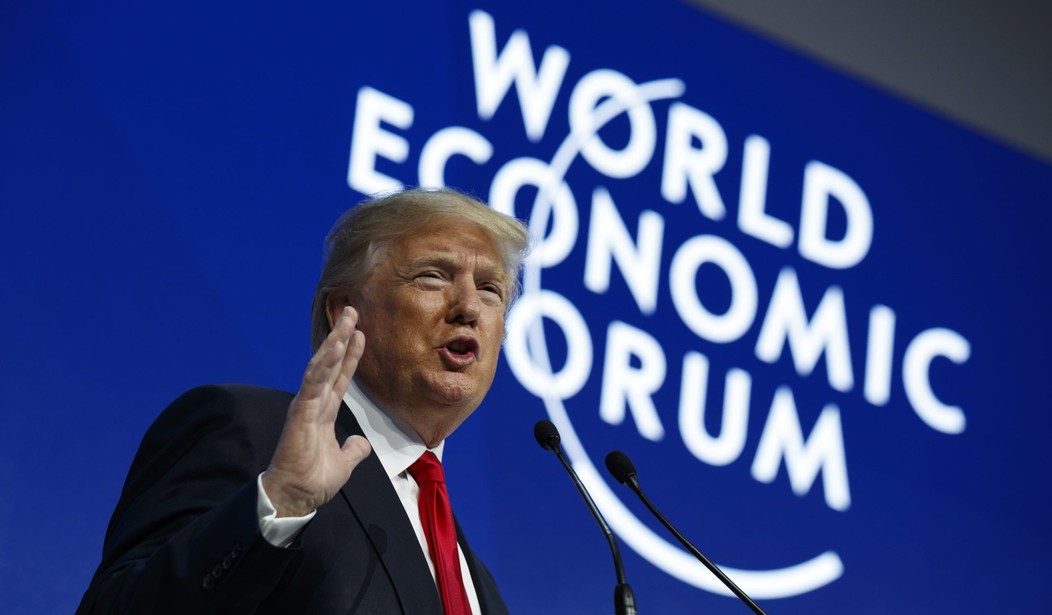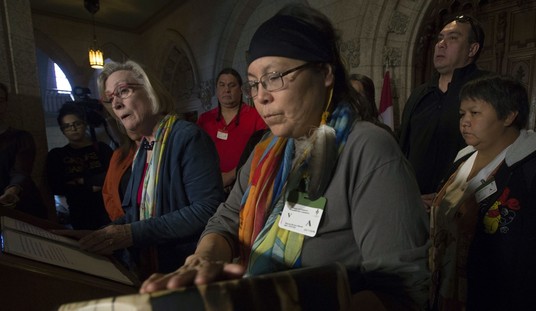As former president Barack Hussein Obama discovered, the problem with leading from behind is that it’s not, well, actually leading. During the eight long years of the Obama presidency, America was mired in tepid growth, governmental “stimulus” boondoggles, and a Carterian level of economic malaise. Then along came a leader, my how times have changed — not just for America but for the world:
A decade after the world descended into a devastating economic crisis, a key marker of revival has finally been achieved. Every major economy on earth is expanding at once, a synchronous wave of growth that is creating jobs, lifting fortunes and tempering fears of popular discontent.
So does the Times think the change in American leadership might have had something to do with this? Of course not; quite the opposite, in fact —
No tidy, all-encompassing narrative explains how the world has finally escaped the global downturn. The United States has been propelled by government spending unleashed during the previous administration, plus a recent $1.5 trillion shot of tax cuts. Europe has finally felt the effects of cheap money pumped out by its central bank. In general terms, improvement owes less to some newfound wellspring of wealth than the simple fact that many of the destructive forces that felled growth have finally exhausted their potency.
The United States, the world’s largest economy, is into its ninth year of growth, with the International Monetary Fund lifting expectations for expansion to 2.7 percent this year from 2.3 percent because of the tax cuts. China has diminished fears of an abrupt halt to its decades-long growth trajectory. Europe, only recently dismissed as anemic and hopelessly vexed by political dysfunction, has emerged as a growth leader. Even Japan, long synonymous with grinding decline, is expanding as well. Rising oil prices have lifted Russia and Middle East producers, while Mexico has so far transcended fears that menacing trade rhetoric from the Trump administration would dent its economy. Brazil, still suffering the effects of a veritable depression, is flashing tentative signs of recovery.
The result is a hopeful albeit fragile recovery, one vulnerable to the increasingly unpredictable predilections of world leaders.
Like you-know-who. Meanwhile, Forbes has an alternative take:
The numbers speak for themselves. Davos Man is ecstatic about corporate tax cuts, according to nearly every single interview from the World Economic Forum that’s been airing this week on CNBC’s Squawk on the Street and Mornings with Maria on Fox Business News.
The Dow is over 26,000. Hell has not frozen over in a nuclear winter. Vladimir Putin has not declared himself president of the United States. All citizens can still vote, no matter their sex, religion or skin tone. Immigrants, even undocumented ones, are not being rounded up and kicked out of the country en masse. Global warming has not sunk Miami or Manhattan. The sun is still rising. Cats are purring. Dogs are barking. Amazing…
Presidents get too much credit when the economy is booming (Clinton) and too much blame when it tanks (both Bushes). The occupant of the White House only has slightly more influence on the economy than humanity does on “global warming.” But there’s no question that the tone set in the Oval Office — Can Do or Can’t Do — sends a strong signal to businessmen and consumers not only here but abroad. Call it irrational euphoria, or call it the zeitgeist, but right now, America is open for business.
Follow me on Twitter @dkahanerules









Join the conversation as a VIP Member